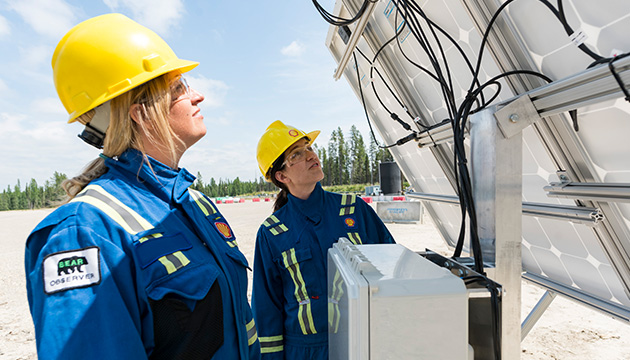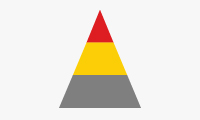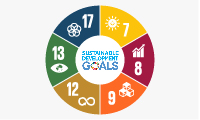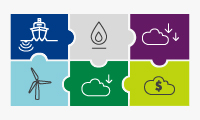Managing methane emissions
Methane is a more potent GHG than CO2. It has 34 times the global warming potential of CO2 over a 100-year time frame, according to the UN Intergovernmental Panel on Climate Change Fifth Assessment Report.
We have a range of technologies and work practices in place to help find and address unintended – or fugitive - methane emissions in our operations. We also implement energy-efficiency measures, as well as flaring and venting reduction programmes. Our Methane Fact Sheet provides a comprehensive account of our voluntary initiatives to reduce methane emissions. Actions to further reduce our emissions will continue to be a focus in coming years.
Highlights in 2017
- We joined the Oil and Gas Methane Partnership, a global voluntary methane emissions reduction programme under the Climate and Clean Air Coalition.
- We launched our latest methane detector pilot at our oil and gas exploration asset in Alberta, Canada.
- Shell and seven energy companies agreed to guiding principles to further reduce methane emissions from their natural gas assets.
In our onshore unconventional operations, we regularly use leak detection and repair (LDAR) programmes, which have infrared cameras to help identify fugitive leaks. We use LDAR in Australia, Canada, the Netherlands, Trinidad and Tobago, Tunisia and the USA, among others, and will continue to extend this approach across our operations.
Collaborating on emissions reduction
In January 2017, we joined the Climate and Clean Air Coalition Oil & Gas Methane Partnership, which brings together industry, governments and non-governmental organisations to improve understanding of methane emissions and work to reduce them. Later in the year, we submitted a detailed plan of our operations that will initially participate in the partnership.
As a member of the Oil and Gas Climate Initiative (OGCI), we are working with experts to improve methane data collection and our understanding of the natural gas life cycle. Shell is working with governments, the oil and gas sector and regulators, to manage methane emissions effectively. We advocate government policies that will support the reduction of methane emissions across all sectors of the economy.
In October 2017, OGCI members committed to a range of measures including establishing a methodology to improve the collection, verification and reporting of methane emission data in 2018. We actively test new technologies in this area through our membership of OGCI Climate Investments. This collaboration, launched in 2016, will invest $1 billion over 10 years in low-carbon technologies.
Shell is working with industry, as well as international institutions, non-governmental organisations and academia, to make progress on improving methane management. In November 2017, Shell and seven energy companies signed guiding principles for reducing methane emissions across the natural gas value chain, from production to the final consumer.
In December 2017, Shell joined the Environmental Partnership in the USA, which requires companies to apply voluntary methane reduction measures in areas such as leak detection and the repair, replacement or upgrade of equipment. The partnership was developed by American Petroleum Institute (API) and includes 25 of its members — companies that account for around a quarter of gas production in the USA. Non-API members can also sign up to the partnership.
We have participated in the EPA Natural Gas STAR programme for many years. This programme encourages oil and gas companies to adopt technologies and practices that reduce methane emissions.
We also collaborate on research with Eurogas, the association representing the European gas industry, and the Natural and bio Gas Vehicle Association, on methane emissions in the gas supply chain in Europe.
Rocky Mountain House pilot
In June 2017, Shell launched a methane detector pilot at our Rocky Mountain House project in Canada. The pilot is part of the Methane Detectors Challenge, which is a collaboration between the Environmental Defense Fund, oil and gas companies, US-based technology developers and other experts.
Our performance
In 2017, our total methane emissions were 123 thousand tonnes. Methane emissions contributed less than 5% of Shell’s GHG emissions on a CO2-equivalent basis. More than 60% of our reported methane emissions in 2017 came from flaring and venting in our upstream and midstream operations.
We report our methane emissions in accordance with applicable regulations and industry standards. We also engage in industry-wide work on developing more accurate reporting methods, such as through IPIECA, the global oil and gas industry association for environmental and social issues.

We have installed methane detection technology at our unconventional gas project near Rocky Mountain House, Canada.
 Sustainability at Shell
Sustainability at Shell
 Sustainable development goals
Sustainable development goals
 About our data
About our data
 Energy transition and climate change
Energy transition and climate change